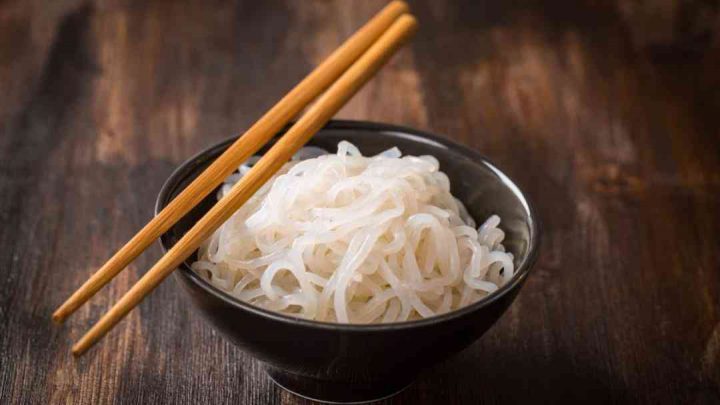Olive oil, safflower oil, fish oil, canola oil. There are so many different oils available today it’s hard to know which one is the best option when following a ketogenic diet.
You may notice that sunflower oil is frequently present on nutrition labels. Sunflower oil is created by pressing the oil from the seeds of a sunflower. It’s considered to be one of the “healthier” oils and it’s most commonly used for cooking and salad dressings.
How does it stack up against the other oils you may encounter in your local health grocery store? Not as well as you would think. By diving deeper into how sunflower oil ends up bottled on our grocery store shelves and what it does in the human body, it’s easy to see that you should pass on the sunflower oil next time you cook up your high fat, low carb dinner.
Here are the 5 reasons why you should not use sunflower oil when following the keto diet.
#1 – High in Linoleic Acid
Sunflower oil is high in the essential fatty acid known as linoleic acid or omega-6. Don’t confuse this with alpha-linoleic acid, or omega-3. Typically, omega-6 fatty acids are pro-inflammatory while omega 3 fatty acids are anti-inflammatory.
And while it’s important to get plenty of omega-6 in your diet, getting too much without enough omega-3 can have a damaging effect. That is why it is important to stick to oils that provide a healthy ratio of omega-6 to omega-3.
It is recommended that Americans consume an omega-6 to omega-3 ratio of 4:1 or less. The problem is sunflower oil has an omega-6 to omega-3 ratio of 40:1.
Compared to hemp seed oil (3:1) and macadamia nut oil (1:1), it doesn’t take much to see there are several alternatives that contain a healthier balance of omega 6 to omega 3 that is also keto-friendly.
Why would this be important? Consuming high amounts of linoleic acid can lead to an increase in the production of small inflammatory proteins called cytokines. Dysregulation of these small proteins increases your chances of developing neurological diseases, atherosclerosis, or cancer.
#2 – Contains Trans Fats
Contrary to popular belief, saturated fat is healthy. It helps you feel satisfied and more full after eating. It resists oxidation and remains stable at high temperatures during cooking.
But like many other ingredients used in processed foods, there are cheaper alternatives out there. One of them is trans-unsaturated fatty acids or trans fats.
Trans fats are an expensive alternative to saturated fat without sacrificing taste. It is one of the worst fats you could eat.
These processed trans fats, frequently used by food manufacturers and restaurants, show up in baked goods, snack foods, creamer, margarine, and fried foods. They have been proven to cause metabolic diseases like obesity and type 2 diabetes, cancer, and heart disease.
Unfortunately, it’s hard to know when trans fats are sneaking into your diet unless you prepare everything yourself. A good takeaway from this is to be cautious when eating out on the keto diet.
Be sure to ask your server what oils are used to cook the food being served and ask for nutrition information whenever possible.
#3 – It’s Unstable and Easily Oxidizes
Vegetable oils, like sunflower, soybean, safflower, and corn oil, are overly processed which strips the oil of all vitamins and nutrients.
These overly processed fats wreak havoc on your diet without adding any nutritional benefit. When exposed to high heat, oxygen, or light, the oil begins to oxidize.
The chemical composition of the oil changes and high levels of damaging toxins are released. This change in composition also causes the oils to become rancid quicker.
Rancid oils contain free radicals and these free radicals damage the proteins, cells, and DNA in your body.
It’s another way these unhealthy oils can lead to increased chances of developing cancer and another reason why you should just say no to vegetable oils while on a ketogenic diet.
So what is the best oil to use when cooking on keto?
Choose oils that are less processed and have a more favorable omega-6 to omega-3 ratio.
For those of us that follow a ketogenic diet, it is recommended that you use avocado oil, coconut oil, and animal fats, like ghee, for cooking.
For salad dressings, extra virgin olive oil or macadamia nut oil are better alternatives and taste great.
Sunflower Oil FAQs
Sunflower oil is not keto-friendly because it contains trans fats that are linked to metabolic diseases such as diabetes, cancer, and heart disease. It can also easily oxidize which leads to an increase of free radicals in the body. Free radicals damage the proteins, cells, and DNA in your body.
Sunflower seeds are mixed with harmful solvents and heated at high temperatures so their oils can easily be extracted by a hydraulic press. This heated extraction process can damage both the oil’s nutritional properties and flavor.
A tablespoon of sunflower oil contains 120 calories and 14 grams of fat. Its fat content is made up of 1.8 grams of saturated fat, 5 grams of polyunsaturated fat, and 6 grams of monounsaturated fat. It does not contain proteins and carbohydrates.
The best keto-friendly alternatives to sunflower oil are MCT Oil, Coconut Oil, Extra Virgin Olive Oil, Avocado Oil, and Grass-Fed Butter.
References
- https://www.ncbi.nlm.nih.gov/pmc/articles/PMC3441046/
- https://www.ncbi.nlm.nih.gov/pubmed/11246548
- https://www.ncbi.nlm.nih.gov/pubmed/1955619
- https://www.ncbi.nlm.nih.gov/pubmed/25393932





